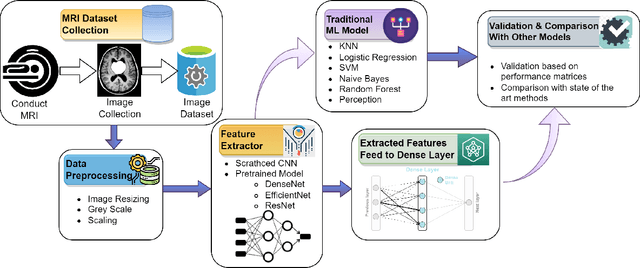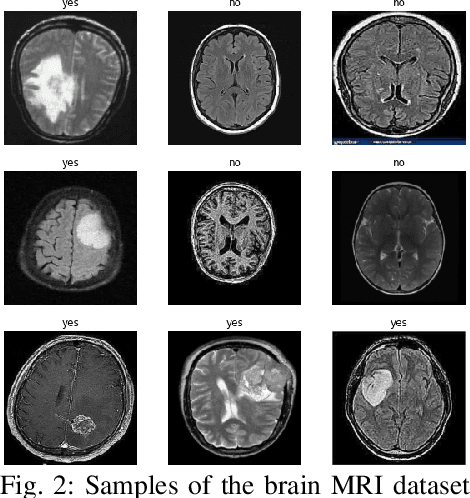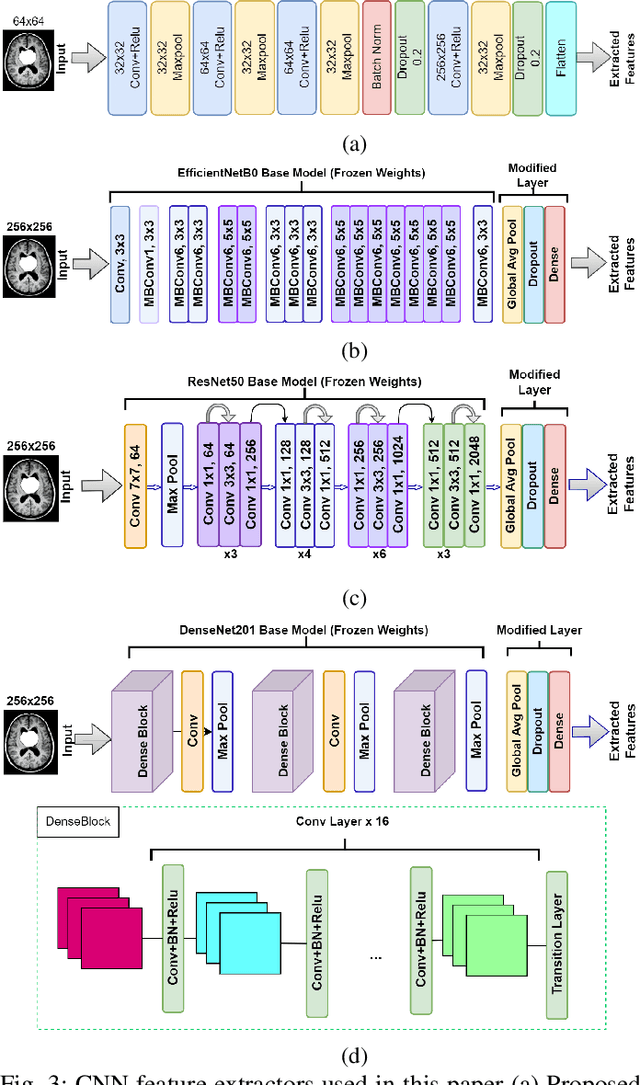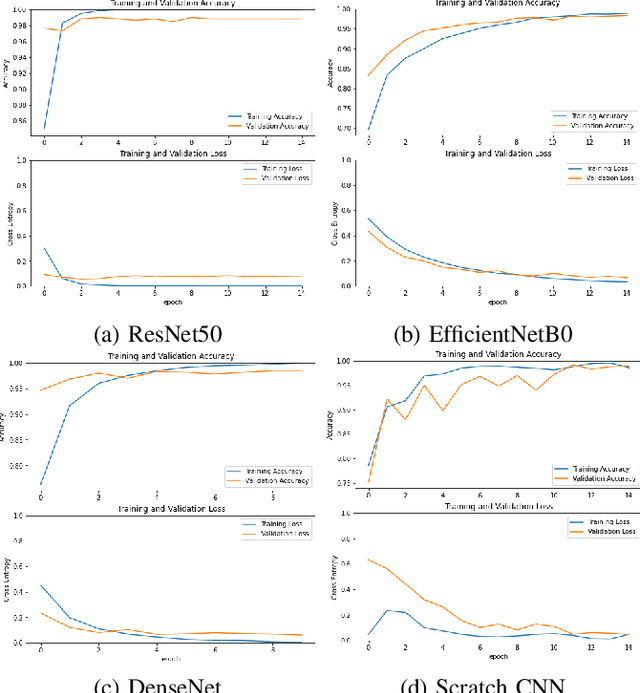Efficient Feature Extraction and Classification Architecture for MRI-Based Brain Tumor Detection
Paper and Code
Oct 30, 2024



Uncontrolled cell division in the brain is what gives rise to brain tumors. If the tumor size increases by more than half, there is little hope for the patient's recovery. This emphasizes the need of rapid and precise brain tumor diagnosis. When it comes to analyzing, diagnosing, and planning therapy for brain tumors, MRI imaging plays a crucial role. A brain tumor's development history is crucial information for doctors to have. When it comes to distinguishing between human soft tissues, MRI scans are superior. In order to get reliable classification results from MRI scans quickly, deep learning is one of the most practical methods. Early human illness diagnosis has been demonstrated to be more accurate when deep learning methods are used. In the case of diagnosing a brain tumor, when even a little misdiagnosis might have serious consequences, accuracy is especially important. Disclosure of brain tumors in medical images is still a difficult task. Brain MRIs are notoriously imprecise in revealing the presence or absence of tumors. Using MRI scans of the brain, a Convolutional Neural Network (CNN) was trained to identify the presence of a tumor in this research. Results from the CNN model showed an accuracy of 99.17%. The CNN model's characteristics were also retrieved. In order to evaluate the CNN model's capability for processing images, we applied the features via the following machine learning models: KNN, Logistic regression, SVM, Random Forest, Naive Bayes, and Perception. CNN and machine learning models were also evaluated using the standard metrics of Precision, Recall, Specificity, and F1 score. The significance of the doctor's diagnosis enhanced the accuracy of the CNN model's assistance in identifying the existence of tumor and treating the patient.
 Add to Chrome
Add to Chrome Add to Firefox
Add to Firefox Add to Edge
Add to Edge